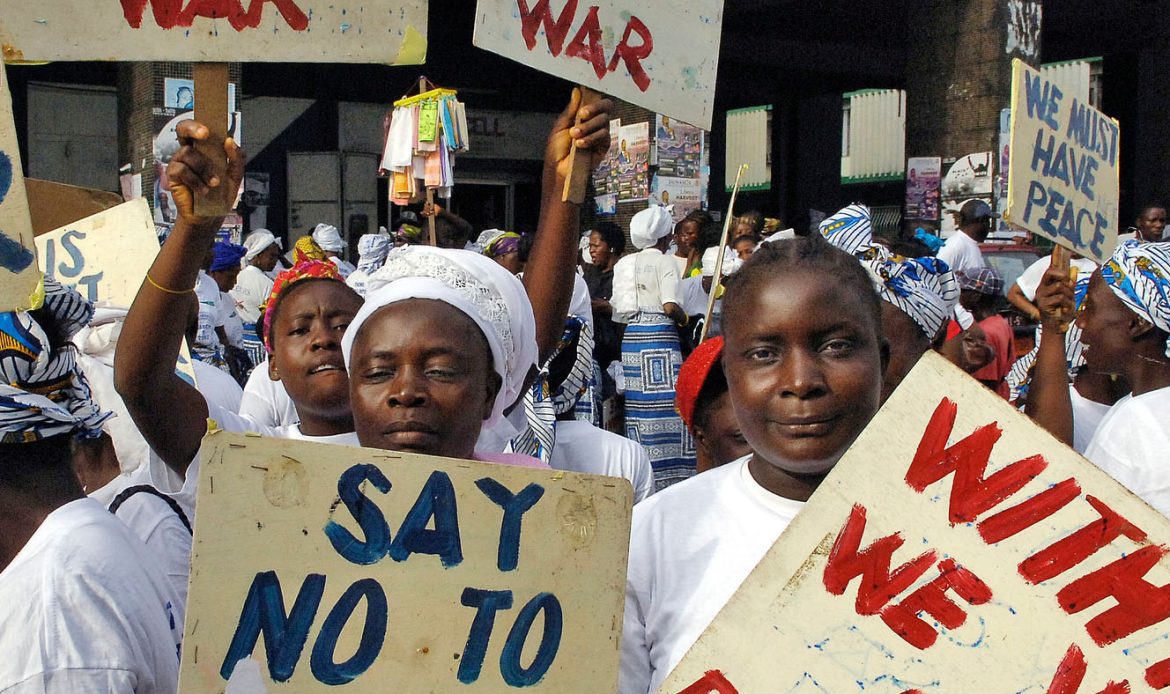This article was published in The Citizen Newspaper, Tanzania on OCtober 2, 2024.
According to the Geneva Humanitarian Law and Human Rights academy, in North Africa and the Middle East there are more than 45 non-international armed conflicts (NIACs) going on at the moment. The involved countries are: Cyprus, Egypt, Iraq, Israel, Libya, Morocco, Palestine, Syria, Turkey, Yemen, and Western Sahara.
In Sub-Saharan Africa, there are more than 35 non-international armed conflicts, some of which have persisted for decades, and seem to be far from ending. What does this tell us? Violence is being normalized as a tool for political causes and a lesson is not learnt that violence does not get the problems solved.
In the year 2020 when the UN was commemorating 75 years since its inauguration, it referred to these times as “A New Era of Conflicts and Violence” which was a title of one of the statements. The UN also acknowledged the rise in armed conflicts, and particularly in 2016 than at any point in history of humanity.
There is also a massive increase in homicides and gender-based violence, even locally as we hear in the news, regardless of the increased awareness among the people. What has gone wrong?
Among other things, it is a truth to be told that globally the society is increasingly pressured by cost of living, safety concerns, political pressures, work demands, climate change, commercialization of services, etc. which push people to do things they don’t like, at the expense of others or the common good.
It is hard to teach people non-violence when violence is all they hear about. It defeats logic to dismiss as obsolete the influence of non-international armed conflicts for example to individual sense of empathy, compassion among young people.
For example, while growing up there are countries that I knew to be fighting wars, some of which still fight until now, that at that moment I would have not been able to differentiate the warring people as a group and the individual citizens. Violence incites violence, and the results are worse and beyond control when effects of violence and cruelty are normalized.

On our part, having had the privilege of living in peace, at least we have no incidences of wars and terrorism, we need to use this opportunity to deepen in our people the human values of empathy and compassion. It’s an honest observation that these purely human values have slowly been categorized as faith / religious values, and hence reserved for people who practice religion.
Empathy is at the core of a society with conversations of possibility and growth, a society that understands human persons, and places value on not exceeding margins and causing harm. Empathy though should not compromise fairness and justice.
This means empathy is necessary both from top to bottom ladders of the society, as well as vice versa. This way there will be a flow of ideas going up and down the ladder as those up will be disposed to listen to the ideas of those below, and think within their circumstances, and those below will cooperate with those above as they feel valued, accorded their rights, and included.
This is one of the practical ways to prevent violence incited by separation of the leaders and those being led. Sometimes people resolve to violence because they are not listened to, especially on collective concerns. Though this is still not a justifiable reason for violence.
Non-violence is a human value, regardless of religious faiths, beliefs, or philosophies. In fact, it sits at the baseline of qualifying values forming the humanness of the human person, which at the same time differentiates human persons from animals. Animals lack a sense of control when their needs are not met and can easily resolve to using force.
It is important that our leaders are trained to take non-violence approaches so as to help address social issues without causing communities and persons pain or make them rethink their sense of belonging. The danger of the latter is them rising up to reclaim by force what they believe is rightfully theirs.
On the other hand, it is important that we equip our nation with an atmosphere of free speech whereby violence is not a tool for control or censoring of public opinion, or opinion on public matters. The absence of this is having leaders run the country without considering the real concerns of their citizens.
On the individual level, our education system needs to provide this knowledge of non-violent approaches in all levels of education so that young people will grow up to be naturally listening and open to dialogue alongside teaching them to be empathic. This will reduce the rate of violence of all forms by healing the very inclination to such acts.
On the sociopolitical side, it is an unimaginable success to raise citizens who take the affairs of their country as their business, not who fear and fun for their lives or who just blindly support and praise. We are far from wars and conflicts if we have open and safe spaces for respectful dialogue and conversations of possibilities.
